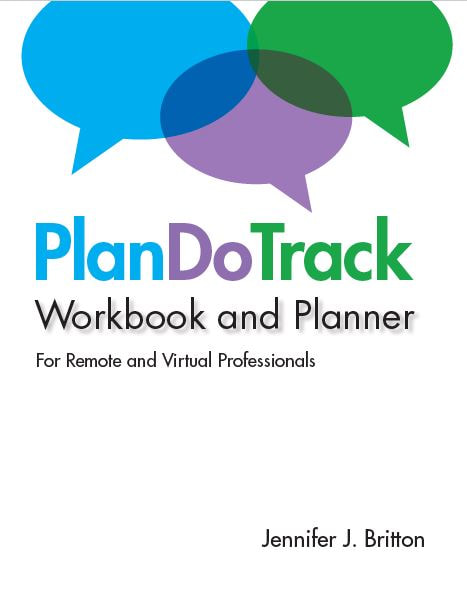|
Collaboration and partnership help us magnify and scale our impact. At least as long as the partnership or collaboration works. Strong partnerships are grounded in a shared vision for the work you are doing together, with clear roles, and usually shared agreements on how you want to work, address issues, and adjust as necessary. While it may be appealing to come together and just wing it, taking some time to design your partnership can be of service to both of you, as well as the people you serve. Before you go to launch a new program you co-facilitate, or partner with new team members, consider these questions:
What other areas do you want to design together as you go to work together? For more on this topic, download a digital chapter I wrote with Effective Group Coaching. You can download the digital chapter here. (use code 4411). There you will find 3 other digital chapters including one on marketing group and team coaching, and two separate case study elements. Be sure to download them today. Enjoy the conversations! Jennifer Jennifer Britton - Potentials Realized
Author of PlanDoTrack (2019), Coaching Business Builder (2018), Effective Virtual Conversations (2017) and From One to Many: Best Practices for Team and Group Coaching (2013). Pick up a copy of any of her books at Amazon. Book Jennifer for a coaching session to explore productivity, teamwork and business issues. Contact her by phone at (416)996-8326 Check out these Instagram accounts @coachingbizbuilder & @remotepathways! Check out upcoming programs on our calendar! Are you a remote professional? Listen into the Remote Pathways Podcast on your favorite podcast player!
0 Comments
Ten minutes of planning can save upwards of 60 minutes of unfocused efforts, according to an old project management adage. It’s alluring to write something down or put it in the system without taking a few minutes each day to look ahead and think about how our planning works, or to look to the wider picture and to think about what’s important. At what levels are you planning? Planning doesn’t always have to be undertaken in a daily focus. Many times, the traction comes from looking to the wider landscape. In fact, PlanDoTrack isn’t a daily planner. It’s about focusing on monthly, quarterly and annual planning. When we shift our attention to the higher level of planning, it can serve as an anchor for us, through the ups and downs. Don’t forget to explore planning at these levels: Annual planning – While we spend a lot of time focusing on these at the start and end of the year, when was the last time you reviewed your annual plan? When you achieve these items, what are you doing to celebrate? Quarterly planning – What are the things you are aspiring to on a tri-monthly basis? For many of us there is seasonality in our work. What are the core goals you want to engage in throughout the year? Weekly planning – What are the key goals you have this week? What are the things which are getting carried over week to week? This may be a signal that they need to be dropped, delegated or deleted. What do you want to do about those tasks? Enjoy your planning! Jennifer Jennifer Britton - Potentials Realized
Author of PlanDoTrack (2019), Coaching Business Builder (2018), Effective Virtual Conversations (2017) and From One to Many: Best Practices for Team and Group Coaching (2013). Pick up a copy of any of her books at Amazon. Book Jennifer for a coaching session to explore productivity, teamwork and business issues. Contact her by phone at (416)996-8326 Check out these Instagram accounts @coachingbizbuilder & @remotepathways! Check out upcoming programs on our calendar! Are you a remote professional? Listen into the Remote Pathways Podcast on your favorite podcast player! While collaboration is something we want to aspire to, what can get in the way? Today’s post picks up with some of the barriers to collaboration I covered in this 2018 Teams365 Blog post. "Politeness is the poison of collaboration." - Edwin Land “Let’s collaborate more” is commonly heard in organizations, and it may be easier said than done. As part of our February posts around collaboration, today’s post explores six barriers to collaboration, along with some possible ways to address these topics. The six barriers we are going to explore in today’s blog post are:
Barrier #1 – Ego. One of the biggest barriers which can get in the way of collaboration is our ego. In collaboration it is important to “park our ego” as much as possible so that we can truly be listening and hearing for what is needed to really synergize. Another commonly used term for parking our ego is “becoming unattached”. When we become too attached to our end result, we may not hear or see possibilities which will actually end with a greater end result. Barrier #2 – Power. When power differentials are too different it can be very difficult to collaborate. In those instances where one group/person may have more “power” whether due to resourcing, or information, it is important to design the boundaries of collaboration and be clear with intent. Barrier #3 - Lack of candor. Candor is defined as “the quality of being open and honest in expression; frankness” in the Oxford Dictionary. Candor is a critical ingredient for collaboration. Without it there will be a lot of wasted effort, and the true essence of collaboration will not be possible. Being able to share ideas without concern for judgement, the ability to be frank and open with feedback are all essential ingredients for collaboration. Barrier #4 - Inability to work across differences. In collaboration synergies, and differences, are usually harnessed. The ability to work across differences, making changes with one’s own style, is another essential ingredient for collaboration. Barrier #5 - Different end goals. When end goals are too different it can be very difficult to have collaboration. For example, if one member is aiming for an end result that is about quality and the other solely on speed, it may be more challenging to find the middle ground amongst the two. In these instances, the end result needs to become an AND rather than an OR. So, A AND B, rather than A OR B. Barrier #6 - Lack of trust. The one essential which will usually arrest collaboration before it starts is lack of trust. When trust is low, or non-existent, it is difficult to collaborate. Collaboration requires honesty, feedback, listening, candor, and bringing your best work to the table, in service to something greater. When trust is low or non-existent, these skills are usually not present. As you consider your upcoming collaboration, how are you doing with these ingredients? What do you see as getting in the way of your conversations? Enjoy your conversations! Jennifer Jennifer Britton - Potentials Realized
Author of PlanDoTrack (2019), Coaching Business Builder (2018), Effective Virtual Conversations (2017) and From One to Many: Best Practices for Team and Group Coaching (2013). Pick up a copy of any of her books at Amazon. Book Jennifer for a coaching session to explore productivity, teamwork and business issues. Contact her by phone at (416)996-8326 Check out these Instagram accounts @coachingbizbuilder & @remotepathways! Check out upcoming programs on our calendar! Are you a remote professional? Listen into the Remote Pathways Podcast on your favorite podcast player! 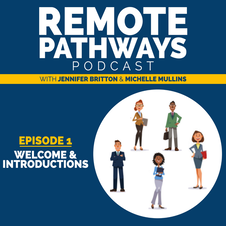 One of the creative projects I have been enjoying this fall and winter is producing the Remote Pathways Podcast. Growing out of my writing with PlanDoTrack and Effective Virtual Conversations, my latest writing is taking me increasingly into the area of remote and virtual teams and leaders. As some you may know, I started my career as a virtual team leader back in the 1990s, managing teams and projects across different countries of Central and South America, and the Caribbean in the international humanitarian sector. Even though the technologies have changed, many of the principles of exceptional remote teamwork remain the same. I'd like to invite you to check out the Remote Pathways podcast which explores the people, places and pathways to remote work. From virtual facilitators, to project managers, sales professionals, coaches, solopreneurs, and those who WFA (Work from Anywhere) and WFH (work from home), many professionals find themselves in the remote space. The first seven podcasts have been exploring the different pathways, and now we are getting into interviews with industry voices. If you have an interesting story to share about your experience with remote work or remote teams, please reach out and let's set up a time to chat! Check out the first seven episodes on your favorite podcast player or by using these links: Episode 5 - Goals, Solopreneurs and Virtual Facilitators. Listen in here. Episode 6 - Systems, Mentoring and Work From Anywhere. Listen in here. Episode 7 - Collaboration, Voluntary Sector and Selling Your Start Up. Listen in here Visit our Facebook page for event announcements, including our monthly Community Calls which happen on the 1st Thursday of every month from 7 - 7:30 am ET. Next one coming up March 5th. Join us! Let's Connect on Instagram as well @RemotePathways. With best wishes, Jennifer Jennifer Britton - Potentials Realized Author of PlanDoTrack (2019), Coaching Business Builder (2018), Effective Virtual Conversations (2017) and From One to Many: Best Practices for Team and Group Coaching (2013). Pick up a copy of any of her books at Amazon. Book Jennifer for a coaching session to explore productivity, teamwork and business issues. Contact her by phone at (416)996-8326 Check out these Instagram accounts @coachingbizbuilder & @remotepathways! Check out upcoming programs on our calendar! Are you a remote professional? Listen into the Remote Pathways Podcast on your favorite podcast player! How are you doing with discernment. Are you finding yourself getting pulled into areas you are not quite sure how you got there? The Merriam-Webster defines it as “the quality of being able to grasp and comprehend what is obscure”. Today’s work context can be a bright landscape of lots of different options, and priorities. Discernment helps us ascertain what is truly important. When we don’t discern what’s important – now, or in the bigger picture – we can find ourselves falling into the trap of the Shiny Red Object Syndrome (which I recently heard abbreviated as SROS). The shiny red object syndrome is like today’s social herding – lots of noise and light draws a big crowd. While it may appear “just the thing” to do or follow, below the surface it may not meet your needs. Our time and attention are limited which makes DISCERNMENT a critical skill to support focus, especially in a digital and remote context. In order to build your muscle in the area of discernment, consider these questions:
I hope that these questions will get you thinking about what’s truly important for you, and your work, and organization. For more on this topic:
Best, Jennifer Jennifer Britton - Potentials Realized
Author of PlanDoTrack (2019), Coaching Business Builder (2018), Effective Virtual Conversations (2017) and From One to Many: Best Practices for Team and Group Coaching (2013). Pick up a copy of any of her books at Amazon. Book Jennifer for a coaching session to explore productivity, teamwork and business issues. Contact her by phone at (416)996-8326 Check out these Instagram accounts @coachingbizbuilder & @remotepathways! Check out upcoming programs on our calendar! Are you a remote professional? Listen into the Remote Pathways Podcast on your favorite podcast player! We often talk about collaboration as something we aspire to, or want to do more of, but what are the things we need to ensure we DO In order to have successful collaboration. For today’s post, I am reaching back to a Teams365 blog post, a daily blog I have hosted since 2014. As I shared in Teams365 Blog post #506 – Four Essential Ingredients for Collaboration: 1. Be clear on why you are collaborating. Collaborating for collaboration's sake does not equal success! Why is this collaboration occurring? What is possible due to the fusion of your skills and abilities? What outcomes are you looking for? Partnerships and collaboration are not always a straight road. It's important to be clear on:
2. Consciously design your partnership Take time to intentionally, or consciously, design your partnership. Building in time for focusing on the relationship can be as important as creating or doing the work together. In a recent newsletter article I shared several of the partnership planning questions I have written about over the years. In my writing I talk about at least four stages where you will want to focus conversation - pre-program/partnership, at the start, during the work and at the end of major projects. Refer to chapter 12 of Effective Virtual Conversations or Chapter 11 of From One to Many: Best Practices for Team and Group Coaching. 3. Regularly check in and adjust. Regular check ins will look different for each project. Ask yourselves regular questions such as:
4. Consider what end result you have in mind - As Steven Covey wrote years ago "Start with the end in mind". Our end result shapes our action. As you engage in every conversation think about the end result you are aiming for. How does this influence your partnership? What roles you play? What attention you have? These four factors - clarity, conscious design, check in, and end in mind - support partnering and collaboration to be a flexible, fluid process. What is important for you to consider in your own work? Best wishes, Jennifer Jennifer Britton - Potentials Realized
Author of PlanDoTrack (2019), Coaching Business Builder (2018), Effective Virtual Conversations (2017) and From One to Many: Best Practices for Team and Group Coaching (2013). Pick up a copy of any of her books at Amazon. Book Jennifer for a coaching session to explore productivity, teamwork and business issues. Contact her by phone at (416)996-8326 Check out these Instagram accounts @coachingbizbuilder & @remotepathways! Check out upcoming programs on our calendar! Are you a remote professional? Listen into the Remote Pathways Podcast on your favorite podcast player! I’ve spent a lot of time in the last fifteen years sparking conversations around partnering, teamwork and collaboration. A common question I’ve asked is “what makes your partnership work”? Beyerlein, Nemiro and Beyerlein in their chapter entitled "A Framework for Working Across Boundaries" in The Handbook of Virtual Teams (pg 28, 2008) write that the ingredients for successful collaboration include:
What do you see as the elements required? In the work I have done as a team coach, there are usually four factors which are mentioned regularly by the teams and groups I work with:
Without Trust, it is unlikely that the relationship will sustain itself and that goals will be achieved to the amount that they can be. Trust is the foundation of most great partnerships. How are you being transparent with each other? What are you doing to follow through on what you said you would do? What are you doing to offer feedback in order to further your relationship and results? Trust is one of the four cornerstones of great partnership and is linked back to the behaviors which can be seen. The second cornerstone is Complimentary Skills. Complimentary skills are important in partnerships to help you accelerate or augment what is possible. If skills are too similar and you are cloning each other, it is likely that a huge blindspot will be created. Planning involves having a shared vision, meeting regularly to pause, making adjustments and thinking about what’s working and what’s not. Having a shared vision for your work or projects is a key element of success. Questions you may want to ask regularly:
Finally, what can you do to Leverage Strengths? We naturally bring elements to the table. What are the things we can do to augment what we are naturally talented with? Our talents/strengths usually create a unique mindset or approach to our work. In the partnership, how is each person uniquely positioned? All the best, Jennifer Jennifer Britton - Potentials Realized
Author of PlanDoTrack (2019), Coaching Business Builder (2018), Effective Virtual Conversations (2017) and From One to Many: Best Practices for Team and Group Coaching (2013). Pick up a copy of any of her books at Amazon. Book Jennifer for a coaching session to explore productivity, teamwork and business issues. Contact her by phone at (416)996-8326 Check out these Instagram accounts @coachingbizbuilder & @remotepathways! Check out upcoming programs on our calendar! Are you a remote professional? Listen into the Remote Pathways Podcast on your favorite podcast player! Our next Weekly Planning Hack is to give things boundaries. Parkinson’s Rule asserts that activities will expand to the time we give them. If we block off huge swaths of time, do we use them most effectively? Are we clear about the smaller tasks (i.e. cleaning out the car for a seasonal detail) which can fit in around the bigger tasks? At the same time where might we need to say NO to certain things? What activities are taking important space which is needed for other things that are going to move you ahead in the medium- and long-terms? As you approach your focus this week, here are some questions to consider:
Giving things boundaries can feel challenging in the moment AND as we do it can be liberating. What do you notice about your boundaries? Enjoy the conversations! Jennifer Jennifer Britton - Potentials Realized
Author of PlanDoTrack (2019), Coaching Business Builder (2018), Effective Virtual Conversations (2017) and From One to Many: Best Practices for Team and Group Coaching (2013). Pick up a copy of any of her books at Amazon. Book Jennifer for a coaching session to explore productivity, teamwork and business issues. Contact her by phone at (416)996-8326 Check out these Instagram accounts @coachingbizbuilder & @remotepathways! Check out upcoming programs on our calendar! Are you a remote professional? Listen into the Remote Pathways Podcast on your favorite podcast player! |
AuthorJennifer Britton is the blogger behind the popular Teams365 blog, a daily,blog for team leaders and members since 2014. Her latest publication is the PlanDoTrack Workbook and Planner. Pick up a copy at Amazon. Pick Up a CopyUpcoming Programs
Join us for the 21 For 21 Virtual Co-working Sprints - $21 US. Want to access the recordings and bonus worksheets? Join us at the Booster Pack $79 US early bird rate. Sign up at 21for21 Virtual Co-working - STAND OUT VIRTUALLY! Stand Out Virtually - Incubator - Running an online, virtual or digital business and want to get the word out to organizations? Join us for the 8 week Stand Out Virtually Incubator. Next group starts April 2021. Build out your brand, offers and proposals. Virtual Facilitation Essentials (8.5 CCEs)- Expand your toolkit for better remote and virtual conversations. This is a virtual train-the-trainer - 5 weeks: Fall 2021 programming starts in October $495 US Learn more and register. Coaches! Register for the 60 Day Coaching Business Builder Accelerator. Join us for 60 Days support and ACTION for coaches wanting to grow their businesses. On-Demand Course. PlanDoTrack Facilitator Training Program (24 CCEs) - Starts again in October. Contact Jennifer to discuss. Month-End/Quarterly Planning Session: Thursday September 30th - 8 -9 am ET Archives
January 2021
Categories
All
|

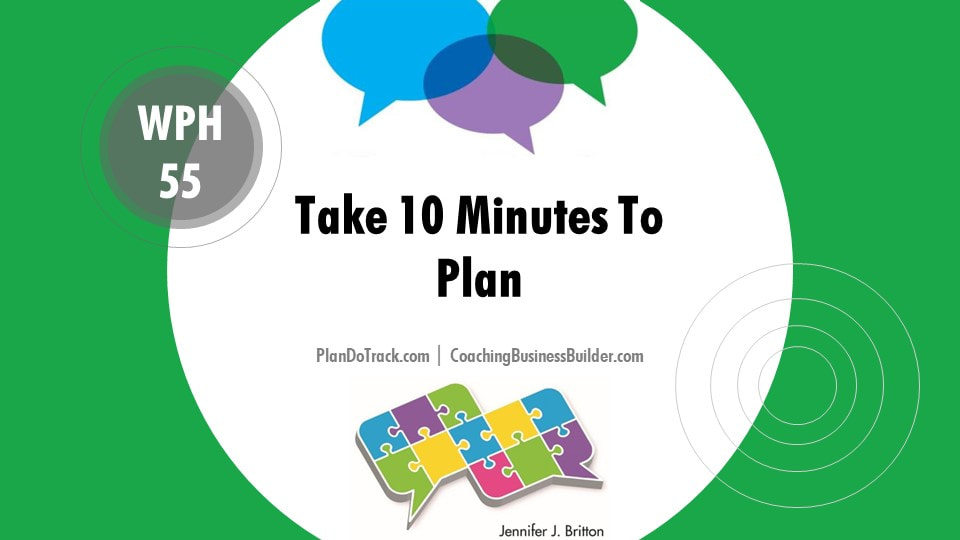

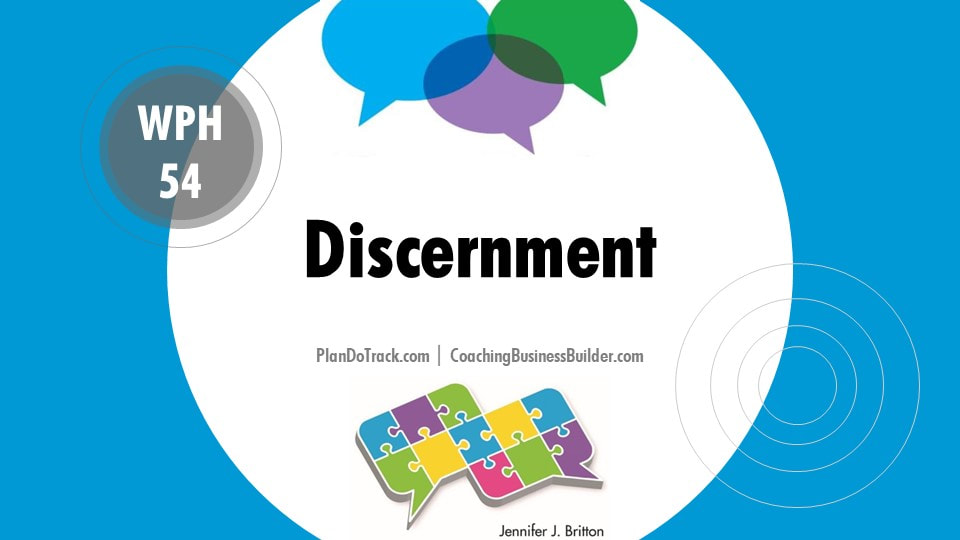


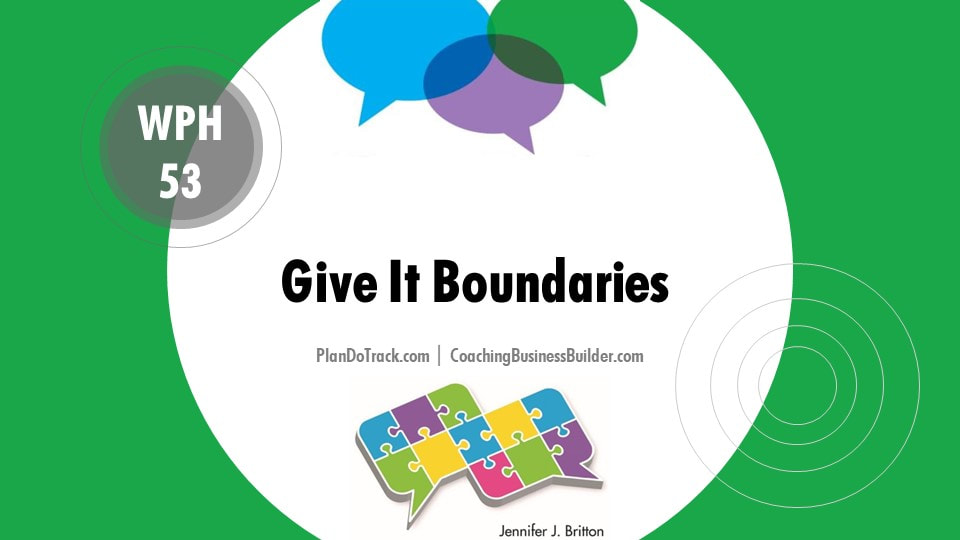
 RSS Feed
RSS Feed
